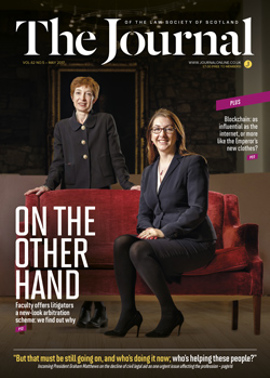Love me, love me not?

Are you a law firm leader? Do you pride yourself on being close to your clients and think they are delighted with the service, at least most of the time? Well, you may be right, but according to a new report, Understanding the Voice of the Client, by LexisNexis in association with Cambridge University’s Judge Business School, you may just as easily be deluded.
The headlines include:
- There is a “clear and unambiguous” disconnection between the top 50 UK law firms and their clients, with lessons for firms of every size.
- Firms do not understand clients’ perceptions of value. They think it is fine to give advice on the law and then leave it to clients to find commercial solutions, an approach that leaves clients feeling sold short. Further, while clients want a service that is “good enough”, they feel that too often firms try to deliver a gold standard, which is unnecessarily costly and time-consuming.
- Legal budgets are under constant pressure, yet 75% of clients are “utterly underwhelmed” by law firms’ responses to requests for different business models, better pricing or more efficient service delivery. They are equally unimpressed by firms’ lack of enthusiasm for helping clients improve their own operations to save costs, and feel they often have “poor visibility” on workflow, billing and associated information.
- Most important of all, there is a fundamental difference in perception between firms and clients about what matters in their relationship. Firms think the transaction is the essence; clients, on the contrary, “place great emphasis on separating the relationship from the transaction”. They “look for investment in and reassurance on the relationship outside of any particular transaction”. Every client interviewed said that law firms do not provide relationship services, and many of them do not see the need. As one general counsel put it, “they don’t seem to see the value in what is not immediately billable. It is extraordinarily shortsighted.” Two consequences of this are more work being kept in-house, and smaller firms with better relationship skills being instructed.
- Finally, the report found, not surprisingly, that firms who have chosen to specialise in particular sectors, acquire deep knowledge of their clients’ world and can give trusted advice on business decisions, not just the law, score more highly than their more narrowly focused competitors.
Two-way communication
Does the report take its own counsel and offer solutions, not just advice? Up to a point. Its suggestions include:
- Operate in a joined-up manner, where different practice areas are involved.
- Spot opportunities for mutual value.
- Selectively invest in clients.
- Offer alternative business models, which better reflect client perceptions of value.
- Map “customer journeys” on regularly occurring matter types, so the service can be made as smooth and pain-free as possible.
- Provide an online “dashboard”, so clients can easily keep their fingers on the pulse of matters.
- Use peer review and mystery shopping to identify where performance needs to be better.
These are fine as far as they go: not new, but common sense. The authors are right to identify that making great personal relationships is the key to long-term success. Reading their conclusions reminded me of George Bernard Shaw’s aphorism that the big problem with communication was the belief it had taken place. In a market where differences in skill are often invisible, firms who commit to regular, thoughtful, non-billable engagement with their clients, listen closely to what they say and are seen to act on it, will have a decisive advantage.
But while law firms need to be honest with themselves, and where necessary raise their game, the report is flawed in implying that the problems it identifies are almost entirely firms’ responsibility to fix. Clients do not seem to have been challenged on their own performance. They were not asked, for example:
- Do you agree that every professional relationship is a two-way street?
- If the service and quality of relationship you receive are below your expectations, to what extent is this down to you?
- Do you articulate your needs sufficiently clearly?
- How often do you set aside time with your law firms to discuss the relationship in the round?
- How might you manage and develop the relationship better?
- How well informed are you about best practice and what is available in the market?
The point is absolutely not to have a blame game. It is to recognise that all great professional relationships are based on agreement about what both parties must deliver, candour and a spirit of mutual support in which they are as committed to bringing out the best in their opposite number, as to their own performance.
In this issue
- “Without prejudice” save as to costs?
- Sanction for counsel: the new landscape
- Keeping payment practice up to scratch
- Access and the call of nature
- Why punish?
- Caught in the past
- Reading for pleasure
- Opinion: Louise Johnson
- Book reviews
- Profile
- President's column
- PAS proves a hit
- People on the move
- Beating the system?
- People perspective
- Leaving the EU: the legislative future
- Ledger for the digital age
- Charities - navigating a new landscape
- Do you know how much is enough to retire?
- Don't call it just a job
- Sanction: appeals not encouraged
- Child abduction: two aspects
- Challenges of gender identity
- Prior warnings and reasonable belief
- Powers in the past
- Scottish Solicitors' Discipline Tribunal
- Missives: can we conclude more quickly?
- Life beyond in-house
- Law reform roundup
- Career planning for women: a new conference
- AML: regulations bring new focus
- Fraud and cybersecurity: are you on the ball?
- Ask Ash
- Incidental financial business licence: the widening scope
- Love me, love me not?
- Appreciation: Kirk Murdoch
- Expert Witness Index 2017
- All in together






